Nonwovens-biodegradability – PET-bottle-chip 07-07-2022 - Arhive
Nonwovens-biodegradability – PET-bottle-chip
Crude Oil Prices Trend
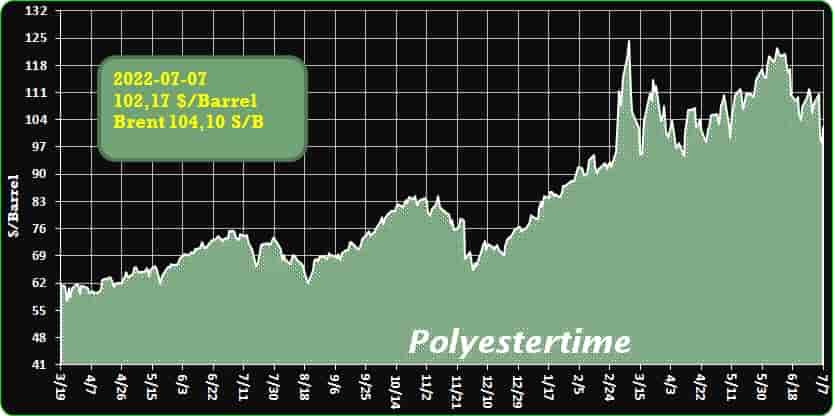
-Greener Artificial Turf: TenCate Grass Joins with Cyclyx
The Cyclyx Intl. plastic-feedstock management consortium continues to grow, most recently with the addition of TenCate Grass, a Netherlands-based manufacturer, distributor, and installer of synthetic turf for sports and landscaping applications.
Cyclyx works with partners throughout the supply chain to develop recycling solutions for a variety of plastics, diverting post-use plastics from waste streams for use as advanced-recycling feedstocks. The group’s mission is to increase the recyclability of plastic from 10% to 90%.
“Our expertise in the chemistry of waste plastics [enables] us to find circular pathways for nontraditional plastic like TenCate Grass’ custom turf materials, ensuring that the plastic in their products finds a second life in the creation of new products,” Joe Vaillancourt, CEO of Cyclyx, tells PlasticsToday. Nonwovens-biodegradability – PET-bottle-chip
The vast majority of TenCate’s synthetic turf is polyethylene, with a small amount of turf being made from polypropylene. The company also occasionally makes turf from nylon fibers, for specialty projects and applications.
TenCate takes a comprehensive approach to boosting product sustainability, including investing in infrastructure to collect, process, harvest, and reuse materials from its products at end of life. The company also designs its synthetic-turf products for recycling.
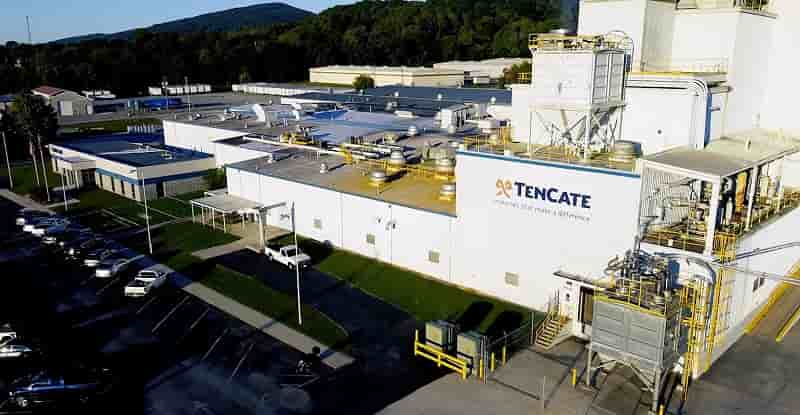
The new vehicle prototype uses 3D printing material formulated by the Group to maximize mechanical and aesthetic performance
he RadiciGroup Radilon® Adline brand of 3D printing filaments is now also part of the new single-seat racing car designed by the Politecnico di Milano (PoliMi) Dynamis PRC team. Over one hundred engineering and design students worked on fine-tuning the new 2022 electric model, which, for the first time, is also designed to work in self-driving mode.
Every year, the PoliMi Dynamis PRC racing team designs a new prototype Formula SAE car that competes in the international university engineering design championship. In the last two racing seasons, the Dynamis PRC team was ranked as the best Italian team and achieved excellent results at the international level.
Angelo Radici, president di RadiciGroup, commented: “This year the Group decided to support the PoliMi university project, in keeping with the Group’s care for supporting young students (aged 19 to 25) who are committed to combine both their studies and extracurricular activities in the automotive sector, where RadiciGroup has great competence in materials and applications.” Nonwovens-biodegradability – PET-bottle-chip
“We were contacted by the PoliMi team to see if we could support them with our innovative materials,” said Chiara Devasini, marketing & development project leader of RadiciGroup High Performance Polymers. “For over 40 years, we have been part of the automotive supply chain. We provide innumerable solutions that have been developed to meet demanding technical requirements and, in recent years, we have been particularly focusing on e-mobility. After a series of meetings concerning the young students’ needs for their new project, we thought of using one of the products in our Radilon® Adline range specifically developed for additive manufacturing. These filaments are based on special polymer grades that have advanced technical characteristics, such as mechanical, chemical and thermal resistance, and are suitable not only for prototyping but also for manufacturing functional and structural components, as needed in this project.”
Indeed, using the RadiciGroup material, an engine cable support and flap ribs were printed for the race car. The support is needed to keep the engine cable in the correct position and becomes very fragile during sharp turns. The internal ribs are essential components for the structure and behaviour of the carbon wing profile. Nonwovens-biodegradability – PET-bottle-chip
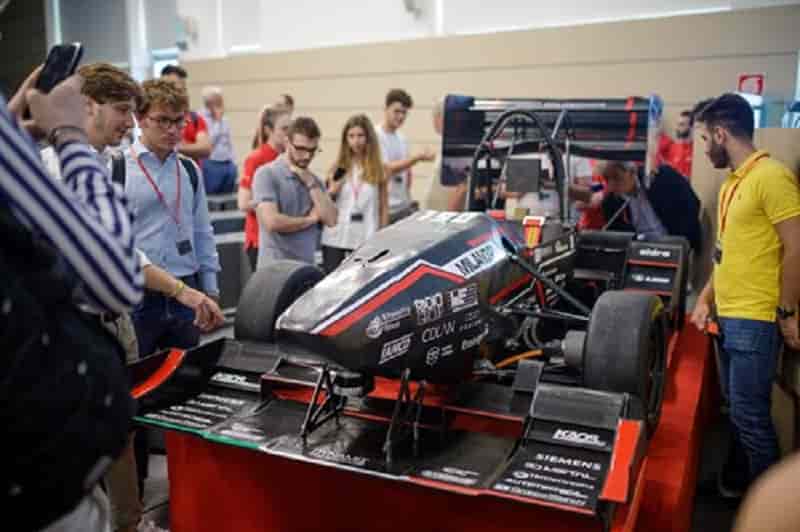
-Suominen’s Green Lab explores nonwovens biodegradability
Nonwovens manufacturer Suominen has strengthened its capabilities in sustainable products by enhancing and upgrading one of its production lines in Nakkila, Finland. The €6 million investment includes the construction of its own compost test centre which aims to determine the biodegradability of nonwovens made of renewable raw materials.
The test centre has both industrial and home compost conditions with the aim of studying biodegradability across a wide variety of environments. Nonwovens-biodegradability – PET-bottle-chip
In determining the biodegradability of nonwovens made of renewable raw materials, the first steps were to analyze disintegration in compost conditions to support product development. In-house compostability tests have already given impressive results by providing information that helps Suominen to claim its products to be truly compostable and make more powerful sustainability statements for the products.
Compost testing conditions are set as ~+58°C and ~+20° C which represent industrial composting and home composting methods, respectively.
Tests have been made during the spring and they have shown impressive results in both industrial and home composting environments. For example, Suominen’s 100% viscose product disintegrates fully in home and industrial compost conditions in less than three weeks.

-ALPLA on tethered caps: Challenges ahead for the beverage industry
EU Directive 2019/904 ‘on the reduction of the impact of certain plastic products on the environment’ requires EU member states to roll out tethered bottle caps for a very large number of single-use plastic beverage bottles by no later than July 2024. It also requires European standardisation committees to establish corresponding standards for them. In parallel with this legal change, all EU states are attempting to reduce their amount of plastic packaging waste. Many businesses, governments, organisations and associations have committed to the European Plastics Pact, which involves an absolute weight reduction of effectively 10 per cent by no later than 2025. Nonwovens-biodegradability – PET-bottle-chip
The industry is adopting new, voluntary standards to try to achieve both goals. Cetie is a standardisation organisation which recommends standards for the development of PET bottleneck finishes, and it and its recommendations have an important role. Its GME30.40 data sheet defines specifications and requirements for highly carbonated beverages, while its GME30.37 data sheet does the same for less-carbonated beverages. Both of these standards incorporate the requirements of the EU directive.
In the past, implementing the recommendations took years and resulted in numerous standards. There is now pressure on manufacturers to achieve, as far as possible, both of the goals described above on time by some point in 2024. This might lead to different approaches and therefore a wide range of different neck variants.
This is because the reduction goal can be achieved faster when the bottleneck is made smaller. There are limits to this, however, as not all small necks are compatible with large bottles. Nonwovens-biodegradability – PET-bottle-chip
At the same time, the neck finishes must fit the new tethered caps and be adapted accordingly, which subsequently increases the options for solutions. Consumer safety is also important in this context because carbonated beverages are kept at a very high pressure, and that means the closure area requires special attention.
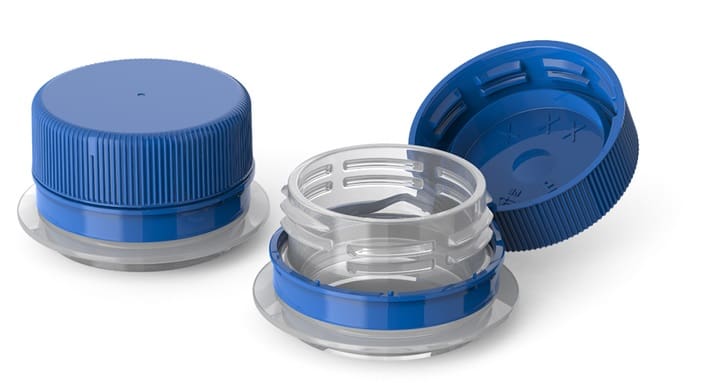
-PET bottle chip market faces delivery dilemma
Since the Spring Festival in 2022, PET bottle chip performance is among the best among many polyester products. The processing spread of PET bottle chip factory has been more than 1300yuan/ton for a long time, and breaks through 1500-1600yuan/ton in some periods. Recently, with the gradual relaxation of domestic epidemic control measures and the expectation of summer demand growth, many end user customers and traders in the PET bottle chip industry reported that it was difficult to pick up goods from bottle chip factories. The highest price spread between spot and forward goods once reached 500yuan/ton. It’s particularly obvious that spot goods performed stronger than forward goods. Nonwovens-biodegradability – PET-bottle-chip
So how long can this trend last?
First, in terms of the market inventory structure, there are not many traders who actually have excess spot inventory on hand, and most of them hold only enough to issue early contracts. At the same time, the inventory of bottle chip factories is gradually declining. As of last Friday, factory inventory averaged around 7 days, higher at 10 days or plus while lower at 4-5 days.
Therefore, although some traders are verbally short, they have actually been forced into long position by the market, and they dare not quote much lower than factory level on spot and near-term goods, in case facing problems in picking up goods from the factory. Forward negotiation range is also basically on a par with factory level. From this point of view, traders’ initiative is restrained in most of the time in H1 2022, they are more of passively following the market fluctuations. In addition, Yisheng has locked most of the sales via contract in advance, so Yisheng goods may gather intensively within the hands of a few contract traders in the future. As these traders lock up the quantity and price, their willingness to short the market reduces, and price fluctuating range is also restricted to a certain extent. In the first half of this year, some traders were unable to carry out the contract when it expires. Nonwovens-biodegradability – PET-bottle-chip
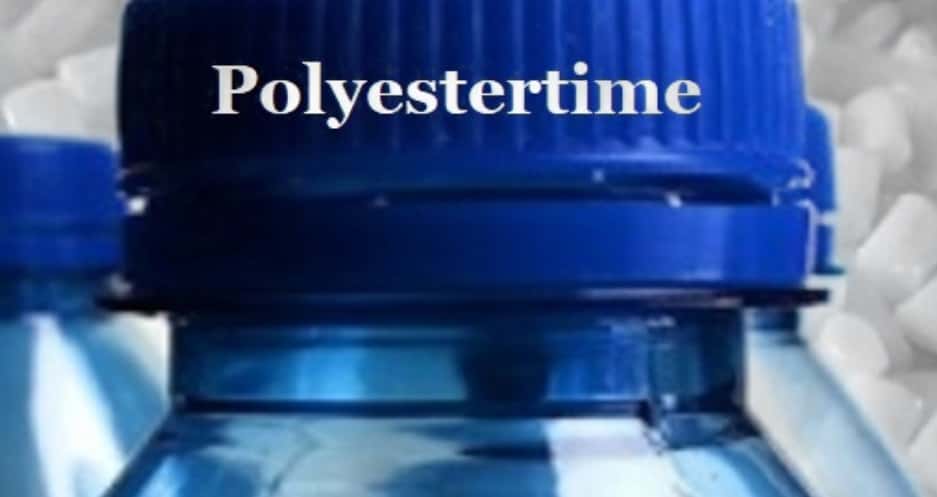
-WhiteCycle: A European consortium to recycle plastic waste
An unprecedented consortium rallying 17 public and private European organizations to establish a circular economy
The WhiteCycle project, coordinated by Michelin, was launched on Friday, July 1. It aims to develop a circular economy to convert complex waste containing textile made of plastic into products with high added value. Co-financed by the Horizon Europe program of the European Commission, this unprecedented public/private European partnership includes 17 organizations.Nonwovens-biodegradability – PET-bottle-chip
The WhiteCycle ambition by 2030 is to foster the annual recycling of more than 2 million tons of the third most widely used plastic in the world, PET[1]. This project should make it possible to reduce CO2 emissions by approximately 2 million tons and to avoid the landfilling or incineration of more than 1.8 million tons of plastic each year.
Composite industrial waste containing textile (PET) and other components from tires, hoses and multilayer clothes at the end of the product life cycle – which is currently difficult to recycle – could soon become recyclable. That material could go into producing new plastic for tires, hoses and clothes.
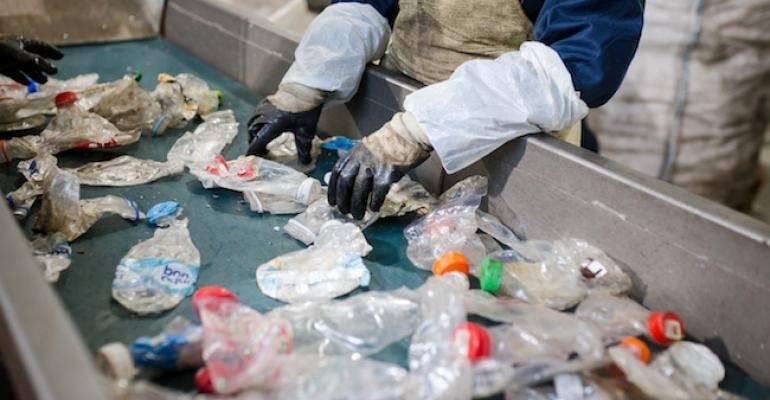
-RECARBON startup looks to develop intermediate products based on recycled carbon fibres
GP Marketing Consulting is pleased to announce the creation of RECARBON, an innovative start-up dedicated to the development of intermediate, thermoplastic and thermosetting products, based on recycled carbon fibres. The mission is to develop innovative and sustainable solutions for the industrial re-use of carbon fibres and other advanced materials. Nonwovens-biodegradability – PET-bottle-chip
RECARBON offers ready to use intermediate materials: prepregs, cores and organo-sheets targeted at high performance applications in the aircrafts, sport & leisure, industrial and automotive sectors.
This new start-up intends to profit from recent developments in automated thermoplastic part manufacturing. This opens up opportunities for a new generation of cost-efficient intermediate products that can be processed quickly and reliably.
RECARBON, an innovative start-up dedicated to the development of intermediate, thermoplastic and thermosetting products, based on recycled carbon fibres.
Thermoplastic and thermosetting products based on recycled carbon fibres.
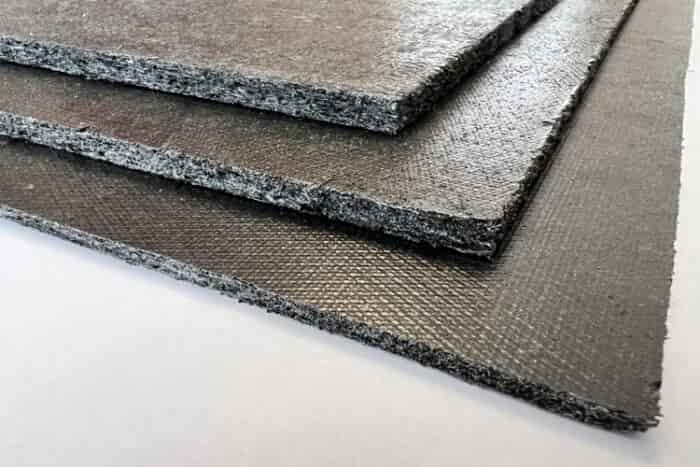
-German position paper on chemical recycling
Published by PlasticsEurope Deutschland and VCI, it illustrates how chemical recycling can contribute to the circular economy and what to do to encourage its development.
PlasticsEurope Deutschland and the German chemical industry association VCI have published a joint position paper on the chemical recycling of plastic waste, which identifies the conditions for this form of recovery to effectively contribute to the development of a circular economy.Nonwovens-biodegradability – PET-bottle-chip
It also suggests initiatives that should be taken by different stakeholders and illustrates how industry could contribute to achieving the goals on climate, the EU Green Deal and the Circular Economy Action Plan.
The document starts from the premise that chemical recycling does not represent the definitive solution to the waste problem, but can provide a decisive contribution in the recovery of a wide range of waste containing plastic which until now cannot be mechanically recycled and are therefore destined for incineration or landfill. In other words, the goal is to increase the amount of waste recycled in Germany and Europe, complementing – and not replacing – the existing recycling processes, so as to achieve the ambitious targets set at European level.
In fact, chemical recycling can treat a wide variety of plastic waste, even unselected ones, removing from the environment the interfering substances from the carbon cycle.
The feedstocks obtained from these processes make it possible to produce materials with the same quality as those made with fossil raw materials, which can be used in demanding applications such as medical and food packaging, where regenerated by mechanical process are not allowed.
As regards the reference framework, the document notes how the quality of chemical recycling processes can be improved by expanding the collection and selection of plastic waste.
Furthermore, an adequate regulatory framework is lacking, which allows – for example – to credit the quotas of material thus regenerated in the calculation of the recycling targets, in order to provide an incentive for further investments. Nonwovens-biodegradability – PET-bottle-chip
According to PlasticsEurope Deutschland and VCI, the industry is working to find solutions to the certification, standardization, mass balancing and life cycle assessment (LCA) problems of chemical recycling processes, but public support for research, development and testing is needed. commercial, especially to set up demonstration plants.
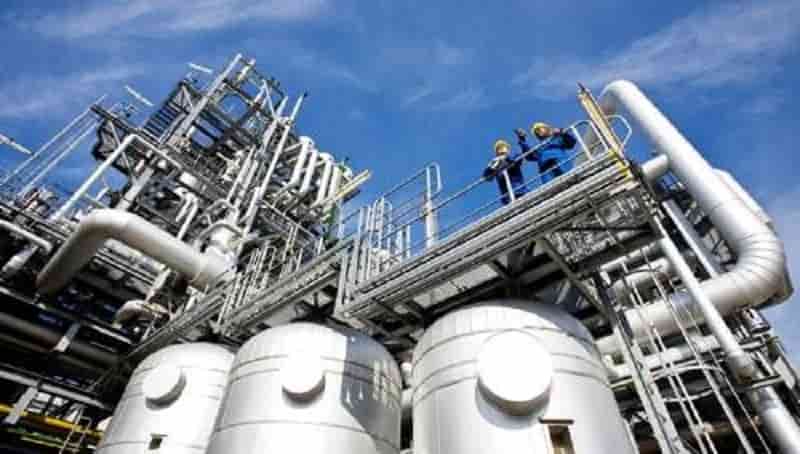
Nonwovens-biodegradability – PET-bottle-chip
